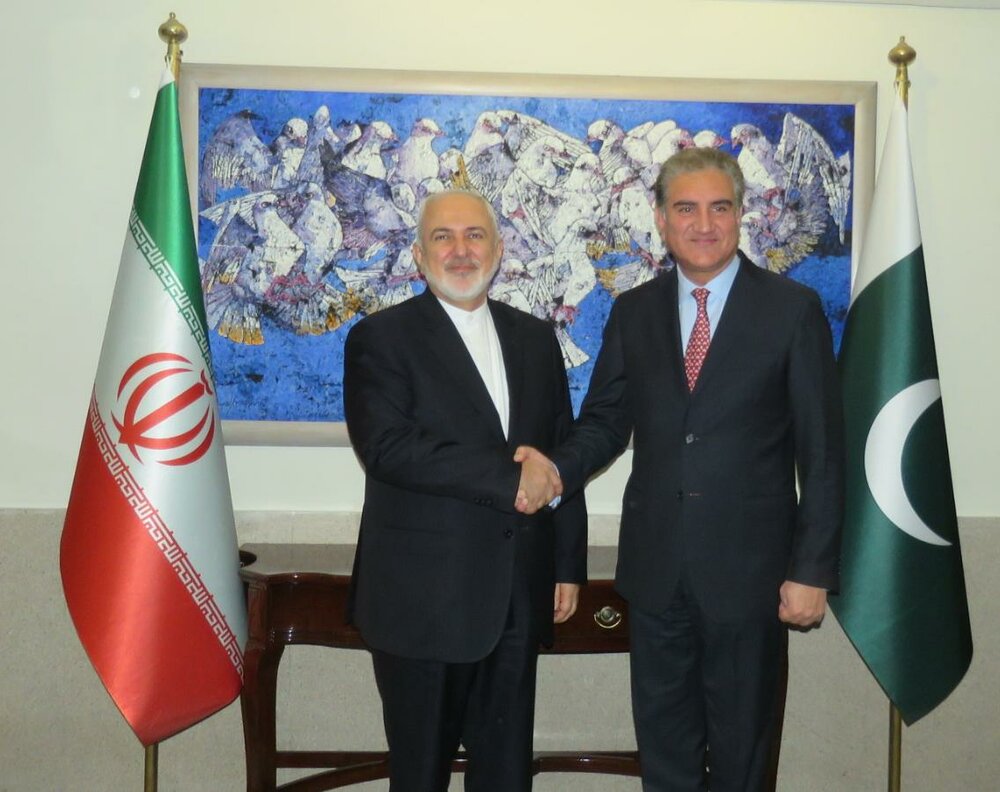TEHRAN - Imran Khan, the populist premier of Pakistan, created flutter when he assumed power following his party’s landslide victory in general election late last year.
A cricketer-turned-politician, with massive following among the country’s burgeoning young population, Khan was seen as a perfect candidate to replace the corrupt and inefficient old warhorse – Nawaz Sharif.
Among the biggest and immediate challenges for Khan were to revive the flailing economy and dismantle the terror infrastructure. However, he seems to be struggling in both the tasks.
The past few weeks have been particularly testing for the first-time premier, especially after two back-to-back terror attacks in Iran’s southeastern Sistan-Baluchistan province and India-controlled Kashmir.
The two attacks last month, choreographed in a similar fashion, were carried out by two militant groups with identical names, both having sanctuaries in Pakistan.
While India, the arch-rival of Pakistan, carried out air raids inside Pakistan to ‘avenge’ the killing of its 44 paramilitary police personnel in Kashmir by Jaish e Mohammad (JeM), Iran took the diplomatic route, urging Islamabad to act tough against Jaish e Adl (JeA) based in Pakistan’s restive Baluchistan region.
Following the attack, many top military generals in Iran, including IRGC Quds force chief General Qassem Soleimani, lashed out at Pakistan’s military leadership, demanding prompt action.
Pakistan, rejecting any involvement in the attack, immediately offered cooperation to Iran. Imran Khan this week sent a close aide to Tehran with letters for President Rouhani and the Supreme Leader.
But, as it appears, there has so far been no ‘decisive’ action against the militant group that has been responsible for a series of attacks against members of Iran’s military forces over the past few years.
On Saturday, President Rouhani telephoned Prime Minister Khan and reminded him of his commitment to act against the terror group. The reminder was followed by a gentle warning.
According to a statement published on President Rouhani’s official website, he urged Khan to take "decisive" action against Jaish e Adl, saying failure to act could jeopardize relations between the two countries.
President Rouhani described relations between the two countries as “unique and historical”, stressing that the onus for sustaining and strengthening bilateral relations lies on officials of the two countries.
“We must not let decades of friendship and fraternity between the two countries be undermined because of terrorist groups’ actions,” President Rouhani told Khan in the telephone conversation.
He said it was clear who the terror groups are, where they are based and who supports them. “We are awaiting your strong action against these terrorists,” he said.
The continuation of these attacks from the Pakistani soil, President Rouhani reaffirmed in unequivocal terms, can undermine relations between the two countries.
Khan, in response, said Pakistan’s civilian and military leadership is prepared to eliminate terror modules and not let them use Pakistan’s soil against neighbors, especially the people of Iran.
He also accepted the invitation of President Rouhani to visit Iran. Pertinently, PM Khan undertook his maiden visit as Pakistani premier to Saudi Arabia, followed by a visit to China.
Pakistan has faced tremendous pressure from the international community, including its neighbors India, Afghanistan and Iran, in recent weeks, urging it to take action against terror outfits based in Pakistan.
“Chinese demanded action against Lal Masjid, Afghanistan against Taliban, India against LeT & JeM & now Iran against Jaish-al-Adl! Arabian Sea is the only neighbor that hasn’t complained about #Pakistan’s jihadist proxies,” tweeted Pakistani journalist and commentator Mohamamd Taqi.
Although Khan is seen as a dove, the powerful military leadership in Pakistan maintains a hawkish policy, in which non-state actors are used for proxy activities, say experts.
On Friday, addressing a rally in southern Pakistan, Khan said that his government will not allow any terror group to use Pakistani soil for destabilizing other countries.
He said a ‘new era’ is emerging in ‘new Pakistan’ and there was a huge desire to build a peaceful and stable Pakistan.
The remarks came days after his government announced a sweeping crackdown on armed groups, which includes Jaish e Mohammad and Jaish e Adl, according to sources.
“There are people among these groups which have done welfare works, they shouldn’t worry… I know there are groups whose militant wings have already ended but we are part of the international community and we will not allow any militant armed group to function here,” he added, referring to the crackdown against banned groups.
“The traditional dalliance between Pakistan’s military and some Arab states has led to the birth of groups like Jaish e Adl in Pakistan’s border region, whose only aim is to destabilize neighboring Iran,” says Sadiq Ali, an analyst based in Islamabad.
He says Khan, despite his own “bromance” with Saudi Arabia’s Mohammad Bin Salman, looks determined to maintain friendly ties with Iran, unlike his predecessor.
Iran, a senior government official in Tehran said, has always advocated friendly ties with Pakistan, despite continued attacks against Iranian military forces by Pakistan-based militant groups.
“Unlike what some Saudi-funded propaganda media outlets are saying, Iran has no intention to confront Pakistan militarily,” he said, wishing anonymity. “Mounting pressure on Pakistan to act on terror outfits does not mean Iran will violate Pakistan’s sovereignty. We are committed to resolve issues amicably.”


No comments:
Post a Comment